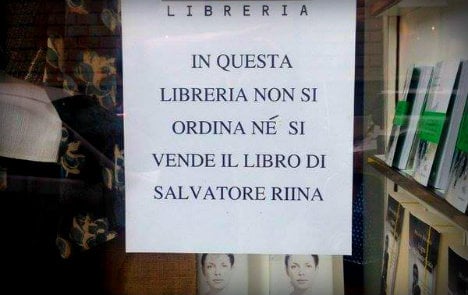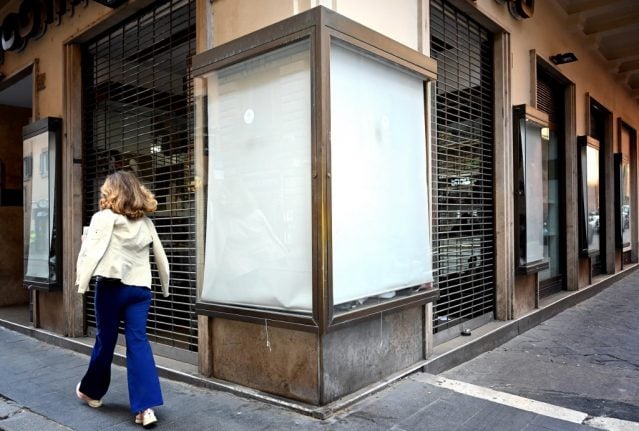Riina's book, “Riina Family Life,” recounts what it was like growing up with the country's most infamous boss, Totò Riina, for a dad and has provoked a storm of controversy in Italy.
Many people have accused the mafia boss's son – who himself was sentenced to eight years in prison for mafia association – of cashing in on his father's crimes.
Now, independent bookstores across the country are refusing to sell the book, especially after Giuseppe Salvatore, 38, was interviewed on a leading chat show by national broadcaster Rai on Wednesday.
“The problem is not the interview in itself,” Palermitan journalist Katia Damiano told The Local. “It's that it was an indirect endorsement of a disgusting and shameful book.”
Since then, the book has been blocked by several independent bookstores in Florence, Catania and of course, Palermo, where citizens can still remember the dark day's of Toto Riina's mafia empire.
“In this bookshop, we don't order or sell Salvatore Riina's book,” reads a printed notice in the window of Modus Vivendi, a popular independent bookstore in central Palermo.
In the streets that surround the bookstore, Totò Riina waged a violent mob war in the 1980s and early 1990s, publicly murdering rival gang members, politicians and policemen in the streets.
He also assassinated the city's two beloved anti-mafia judges, Giovanni Falcone and Paolo Borsellino.
“Back then violence was so common it almost felt normal,” bookshop employee Fabrizio Piazza Told The Local. “Every day the newspapers carried stories of the war showing photos of the dead.”
Salvo Spiteri, the owner of Modus Vivendi, told The Local that the decision not to sell the book was an act of resistance against the mafia and an attempt to improve the image of the city.
“Before being a bookshop owner, I'm a Sicilian and a Palermitan,” explain Spiteri. “How much longer before we can move on from the story of Riina?
“Totò Riina was one of the greatest criminals in the world – even if he sometimes hugged his son in private. This book is some kind of attempt to legitimize them, to overhaul their image.”
There have been numerous anti-mafia movements in Palermo since the dark days of Riina, but Spiteri explained that all citizens must continue to make anti-mafia gestures, however small they may seem.
“For me as a bookshop owner, that means announcing my decision not to sell the book in a clear and unequivocal manner.”




 Please whitelist us to continue reading.
Please whitelist us to continue reading.
Member comments